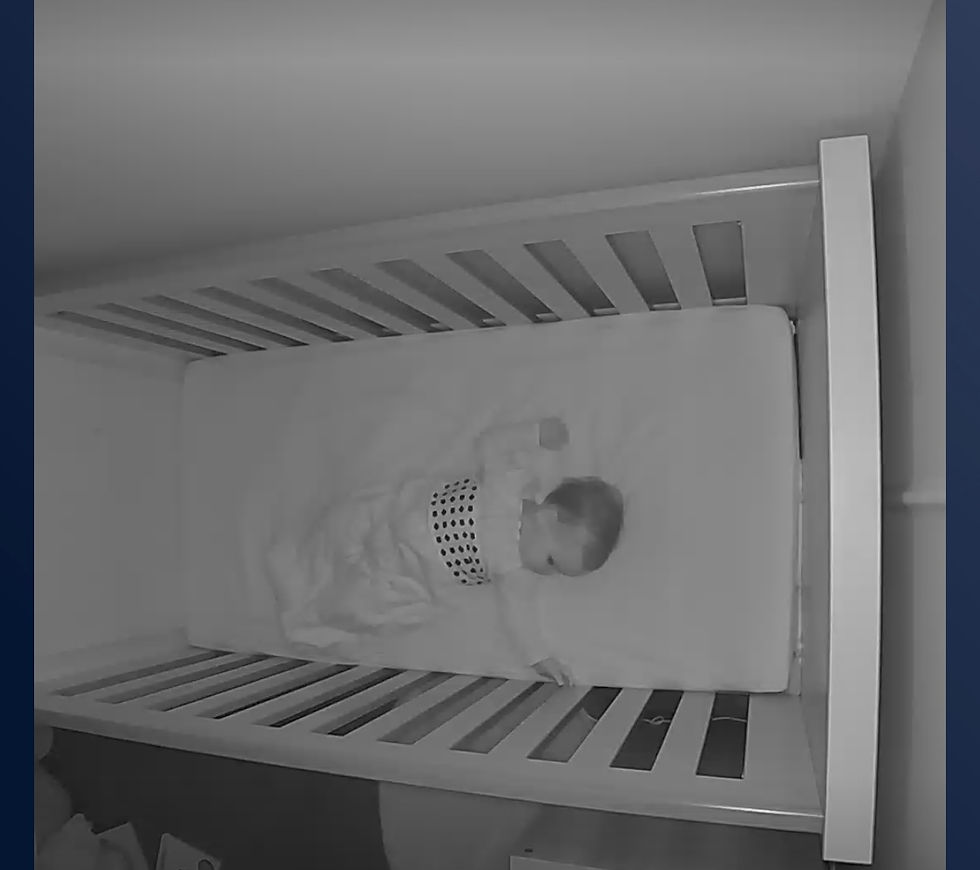Sleep Training
- Alyssa Watson
- Oct 20, 2025
- 3 min read

What Is Sleep Training?
Simply put, sleep training is the process of helping children learn to fall asleep independently. This is often referred to as self-settling and is commonly used by parents of babies who wake frequently during the night
Common Methods of Sleep Training
Extinction-Based Methods (e.g. “Cry It Out”)
Perhaps the most controversial method, this involves leaving your baby to cry in their own sleep space until they eventually fall asleep. It is often the quickest approach, though understandably can be distressing for parents.
Graduated Extinction Methods (e.g. “Ferber Method” or “Controlled Crying”)
These involve allowing your baby to cry for short periods between regular check-ins. The intervals between checks gradually lengthen until your baby falls asleep independently.
Room-Based Methods (e.g. “Chair Method” or “Gradual Retreat”)
These approaches involve starting bedtime close to your baby, with or without verbal or physical comfort, and gradually moving further away each night until they can settle without you in the room.
“Pick Up, Put Down”
This method involves placing your baby down and picking them up again as soon as they begin to cry, repeatedly until they fall asleep in their sleep space. While often considered the most “gentle” or responsive approach, it can also take the longest to see progress
My Story
As I’ve shared before on my website and social media, my own baby struggled greatly with sleep, mainly due to silent reflux, which made lying on his back extremely uncomfortable. He slept best on our chests, and my husband and I took shifts during the night to stay awake whilst he slept.
Eventually, when his reflux had resolved, we transitioned to safe co-sleeping. But when the dreaded four-month sleep regression arrived, we were complete zombies. It’s important to note that this so-called regression is actually a progression and completely normal and developmentally necessary for babies to develop more mature sleep patterns. Still, knowing that didn’t make the sleep deprivation any easier.
After about eight weeks of running on empty, we knew we had to take action.
Our Sleep Training Journey
The idea of sleep training brought up so many emotions for me. From everything I had read online (mainly on social media), I was convinced it would harm my baby’s emotional wellbeing. I felt like I had to decide between remaining an exhausted, barely functioning mum, or risk emotionally damaging my baby.
At this point, the only way he would sleep was if we paced the dark bedroom for 30 minutes or more, holding him as he red-faced screamed until he eventually crashed from exhaustion. I felt like a failure because even trying my best to comfort my baby just was not working. There had to be an easier way.
First we set aside a weekend to try the Pick Up, Put Down method. But after three solid hours one afternoon of attempting to get him down for a nap, it became clear that picking him back up was actually upsetting him more and no amount of physical comfort was helping.
Weeks later, out of sheer desperation, I decided to try Controlled Crying. To my surprise, on the very first night, after around 20 minutes of crying (with regular check-ins), my baby fell asleep on his own - and slept for the longest stretch he ever had. The level of distress I witnessed was so much less than with anything else I had tried (yes- even cuddling him to sleep!)
From that night onward, his sleep went from strength to strength. He was happier, brighter and more content during the day and so were we.
What I Learned
This experience taught me that there is no one-size-fits-all solution when it comes to a baby’s sleep. Every baby is different, with unique needs and temperaments — and as parents, you should never feel shamed or pressured into one approach or another based on what you see on social media.
There’s an excellent article that summarises the research and data around sleep training and emotional health, well worth reading.
My Approach
This is exactly why I choose speak in-depth with every family I work with — to really get to know them, understand their baby, listen to their wishes and create a sleep plan that they feel truly comfortable with and that will actually work.
My inbox is always open if you’d like to chat.
Alyssa
[1] "Is Sleep Training Harmful?" by Tom Valliant, July 2024 https://pudding.cool/2024/07/sleep-training/



Comments